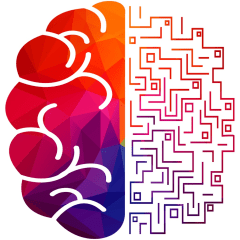Doulas and midwives are both professionals in the field of maternal and reproductive health, but they serve different roles and functions. Here's a detailed comparison between doulas and midwives:
Doula:
- Role: A doula is a trained and supportive professional who provides emotional, physical, and informational support to individuals and their partners during pregnancy, childbirth, and the postpartum period. The primary focus of a doula is on emotional support, comfort measures, and advocacy for the birthing individual's preferences.
- Services: Doulas offer continuous emotional support, reassurance, and encouragement throughout the birthing process. Doulas provide comfort measures such as massage, positioning suggestions, and breathing techniques to help manage pain and discomfort during labor. Doulas advocate for the birthing individual's choices and preferences, ensuring their voice is heard by medical practitioners.
- Training: Doulas undergo specific training programs that cover childbirth education, comfort techniques, communication skills, and advocacy. Certification may be obtained through organizations like DONA International or CAPPA.
- Medical Procedures: Doulas do not perform medical procedures or provide clinical care. Instead, they complement the care provided by healthcare professionals, including midwives and doctors.
- Postpartum Support: Doulas often extend their support into the postpartum period, assisting with newborn care, breastfeeding guidance, and emotional support for the new family.
Midwife:
- Role: A midwife is a healthcare professional who is trained to provide primary care to individuals throughout the reproductive lifespan, including prenatal care, childbirth, and postpartum care. Midwives are trained to manage low-risk pregnancies, conduct deliveries, and provide general women's health services.
- Services: Midwives offer comprehensive prenatal care, including regular check-ups, screenings, and monitoring the health of both the pregnant individual and the developing fetus. Midwives attend and assist with childbirth, providing support during labor, facilitating the delivery, and managing any complications that may arise. Midwives continue to provide care in the postpartum period, monitoring the health of the birthing individual and the newborn, offering breastfeeding support, and addressing any postpartum concerns.
- Training: Midwives undergo extensive medical training, including formal education in midwifery, which can lead to certification or licensure. They may be certified nurse-midwives (CNMs) or certified professional midwives (CPMs).
- Medical Procedures: Midwives are trained to perform medical procedures, including conducting physical examinations, ordering and interpreting tests, and administering medications. They can also manage low-risk pregnancies and births.
- Collaboration:While midwives can provide primary care independently, they often collaborate with obstetricians and other healthcare professionals, particularly in cases of high-risk pregnancies or complications.
In summary, doulas and midwives play distinct but complementary roles in supporting individuals during pregnancy and childbirth. Doulas focus on emotional and physical support, while midwives provide comprehensive clinical care, including prenatal, delivery, and postpartum services. Many individuals choose to have both a doula and a midwife as part of their birthing team to receive holistic and personalized care.

